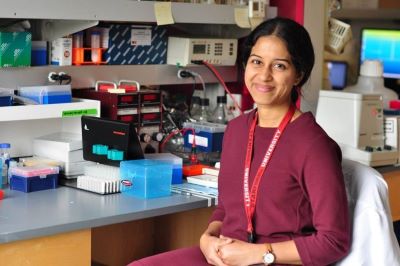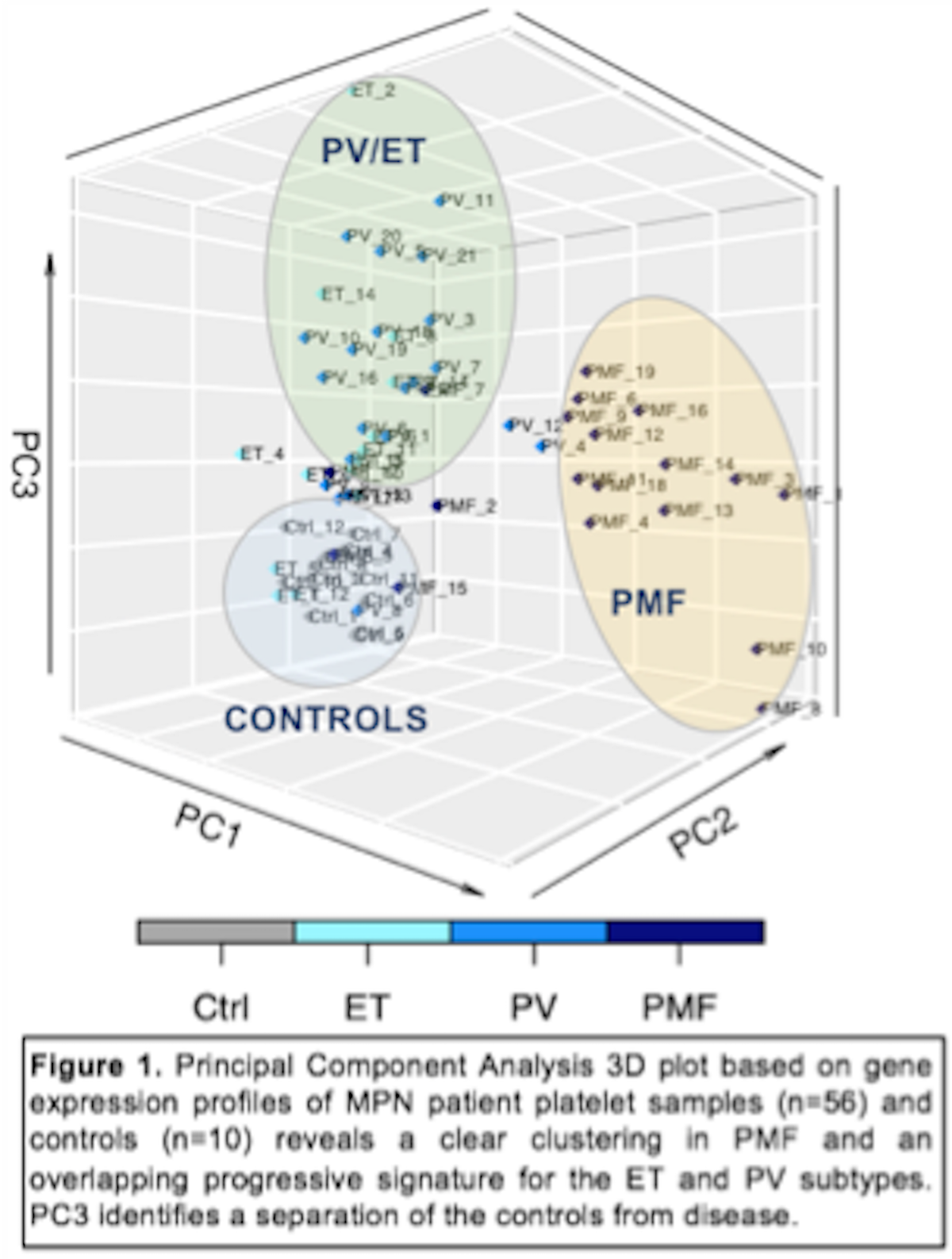Discovering Science Yet Driven by the Heart
Anandi Krishnan, Ph.D.
profiles.stanford.edu/anandi-krishnan
Instructor, Department of Pathology, Stanford University

Anandi Krishnan, Ph.D.
Anyone making their way in the world has had several influences, positive and negative, that shape their present. For me, those contributions were the wealth of experiences that an ever-striving middle class home in India affords—quiet conviction, grit and a certain sanctity around education, scholarship and giving back to society. But beyond the home, it was really love that led me into a scientific career. Joining hands with my husband right after earning my bachelor’s degree in engineering, I left India to do doctoral work in the United States at what turned out to be a most fortunate and influential choice: the laboratory of Dr. Erwin Vogler and the study of blood protein/surface interactions and mechanisms of thrombosis.
Dr. Vogler was a committed mentor who shared his time and wisdom generously and methodically fostered my growth as a translational scientist well before such a term was the trend. He had an uncompromising commitment to curiosity-driven basic research, and in our laboratory, we often found ourselves enthusiastically tinkering with various biological and physical systems. I would say that it is really here that I developed my deep love for science, and that spark is what has kept me pursuing science through various life hurdles.
In securing a postdoctoral fellowship grant with the American Heart Association Bugher Foundation (a multi-university research network bringing together basic and clinical research trainees), I became completely immersed within the laboratories of Richard Becker and Bruce Sullenger, as well as the Duke Clinical and Translational Science Institute. However, despite substantial early research progress, my research career came to a halt at the crucial postdoc-to-faculty transition because of multiple family medical circumstances. Although I did not immediately see a path forward, I had previous and current mentors to guide me and help me prepare for the NCATS research re-entry grant opportunity.
The nearly two years of the re-entry research that ensued opened a new research direction for me. The focused, protected time; a dedicated mentorship team; and wide access to cutting-edge university infrastructure immediately facilitated the next transition—my current career development award. As a woman in science who has navigated uncommon pathways to sustainable research, I sincerely hope my story will send a message to young women everywhere to persist in following their passion and to believe firmly that supportive doors do come open for them. I would only add that I am still learning the skills necessary for a successful career in translational science and work every day to overcome my own fears and doubts as I move forward.

I would like to thank the National Institutes of Health—specifically, the NCATS—for the remarkable research reentry opportunity, as well as the National Human Genome Research Institute, for my current mentored career development award that has facilitated continued research. I hope my story will serve to inspire others to pursue science despite overwhelming life challenges.
Current Research
Platelets are anucleate cells that circulate in the blood and play critical roles in multiple processes and diseases, from their traditional function in hemostasis and wound healing to inflammation, immunity, cancer metastasis, and angiogenesis. Evidence is evolving that the molecular signature of platelets may be changed in disease conditions where these processes are altered. Therefore, the study of the molecular mechanisms that control the activation and aggregation of platelets will lead to the design of diagnostic tests and therapeutic strategies to treat platelet deficiencies.
My research uses next-generation RNA sequencing and advanced bioinformatics analyses to develop signatures of disease and therapy in a model cancer patient group—myeloproliferative neoplasms. To the best of my knowledge, my current work is the first comprehensive RNA-sequencing study of the platelet transcriptome in blood malignancies and will be the first to demonstrate integrated metadimensional analysis of patient genetic, transcriptomic and clinical data in these cohorts. Importantly, although blood diseases are a natural place to begin using these approaches given the ease of access and measurement, results will be generalizable to other types of genetic and rare diseases. The innovative data and the systems genomics approaches, built directly on the strengths of my mentorship team, will generate new knowledge about human disease and biology.


